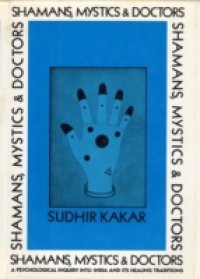Shamans, Mystics and Doctors is a detailed and thoroughly fascinating account of the many ways in which the ancient healing traditions of Indiaembodied in the rituals of shamans, the teachings of gurus and the precepts of the school of medicine known as Ayurvedadiagnose and treat emotional disorder. Drawing on three years of intensive fieldwork and his own psychoanalytic training and experience, Sudhir Kakar takes us into a world of Islamic mosques and Hindu temples, of assembled multitudes, and dingy, out-of-the-way consultation rooms a world where patients and healers blame evil spirits for emotional disturbances where dreams and symptoms that would be familiar to Freud are interpreted in terms of a myriad of deities and legends where trance-like ';dissociation states' are induced to bring out and resolve the conflicts of repressed anger, lust and envy where proper grooming, diet, exercise and conduct are (and have been for centuries) seen as essential to the preservation of a healthy mind and body. As he witnesses the practitioners and their patients, as he elucidates the therapeutic systems on which their encounters are based, as he contrasts his own Western training and biases with evidence of his eyes (and the sympathies of his heart), Kakar reveals the universal concerns of these individuals and their admittedly foreign culturespeople we can recognize and feel for, people (like their Western counterparts) trying to find some balance between the pressures and rewards of the external world and the fantasies and desires of the internal. This is a major work of cultural interpretation, a book that challenges (and should enhance) our understanding of therapy, mental health and individual freedom.

